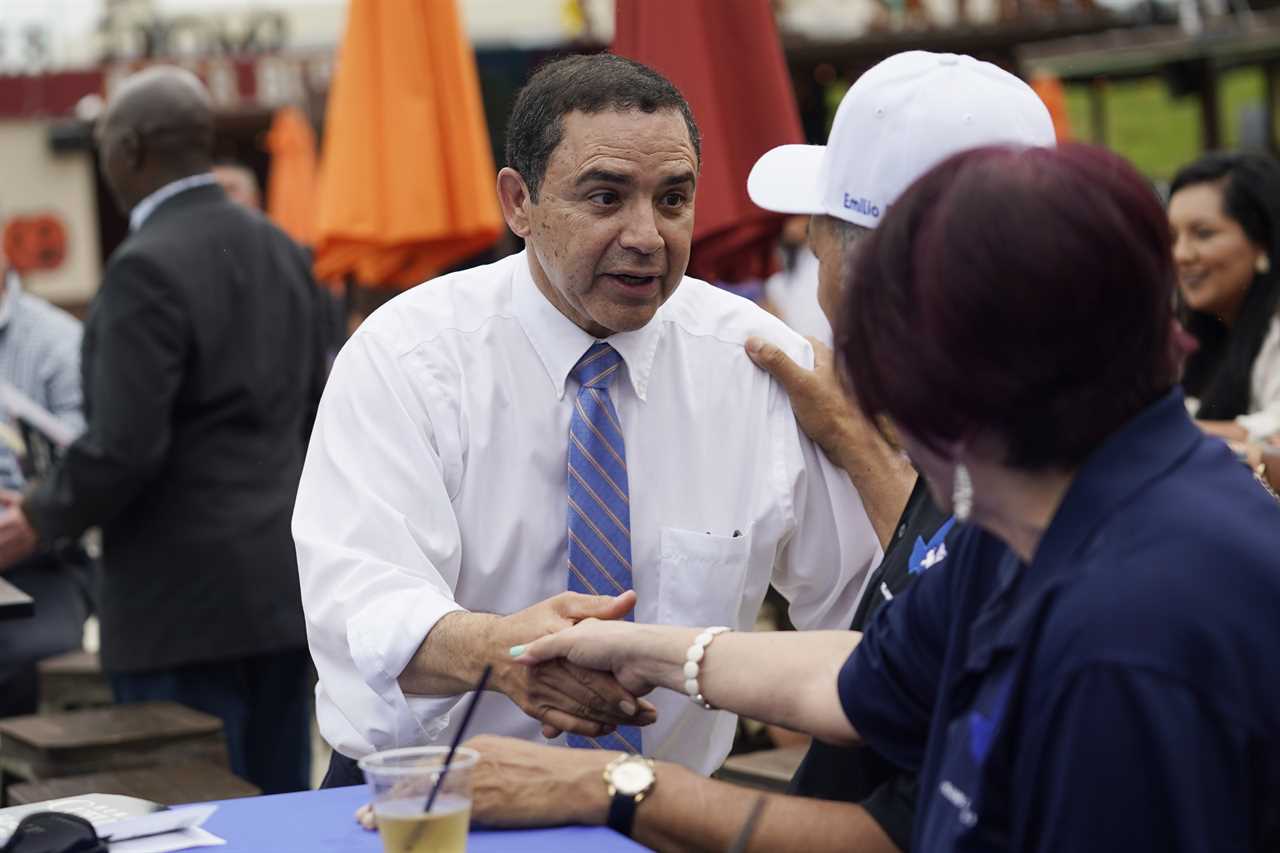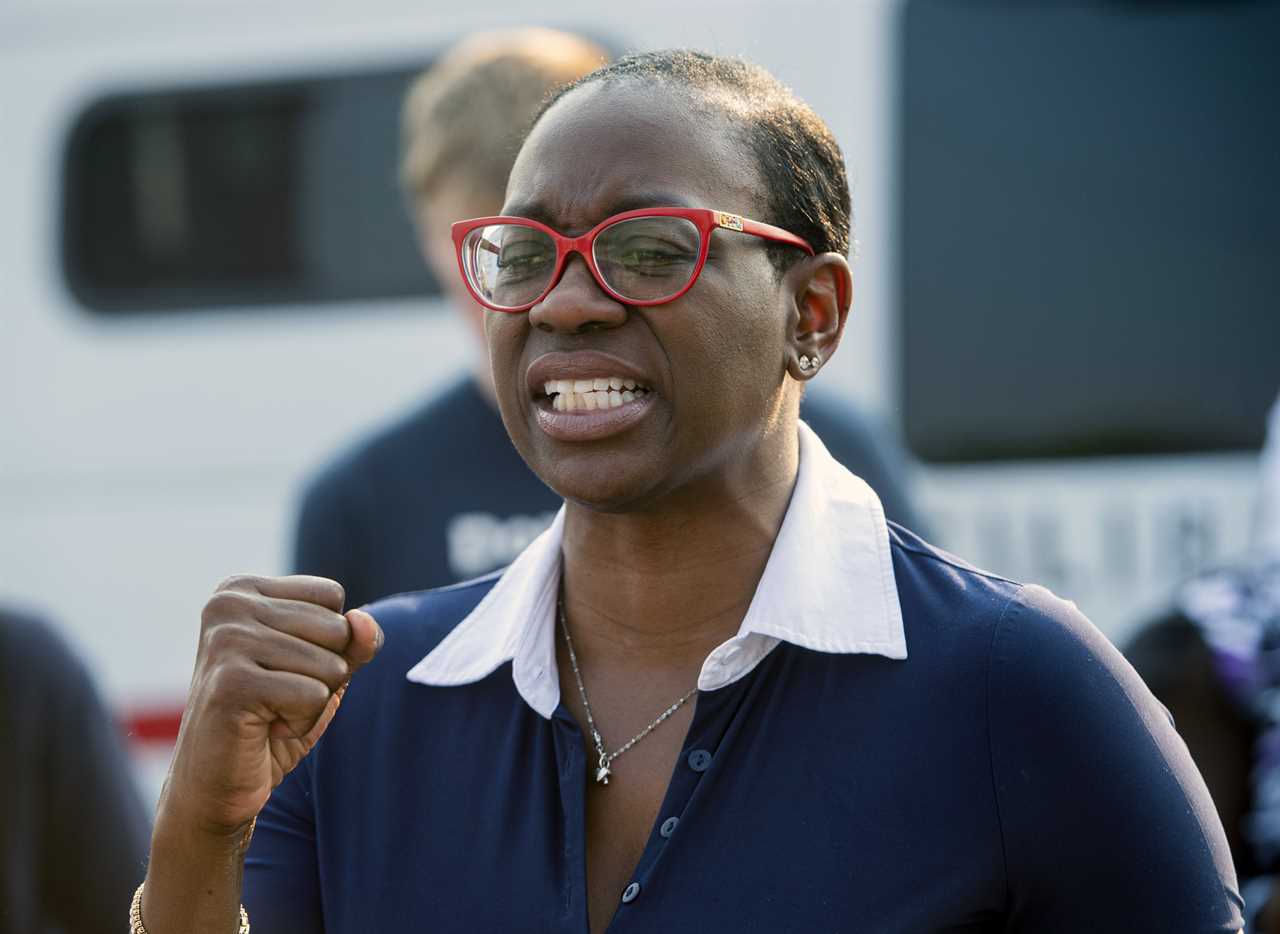
House Democratic primaries are drawing record cash — even as they’re almost guaranteed to lose their majority.
Super PACs and other organizations have already dropped more than $53 million in Democratic House primaries this year, according to OpenSecrets, with four more months of nominating contests to go. The outside spending has zoomed past the approximately $30 million spent in each of 2018 and 2020, much of it focused on safely blue seats, where different wings of the Democratic Party are battling to elect primary winners likely to go to Congress — and stay there for years.
The combatants include everything from industry groups to progressive organizations like Justice Democrats and the Working Families Party — and, especially, super PACs backing more moderate candidates, like one formed by AIPAC and another supported by LinkedIn co-founder Reid Hoffman. Even with Democrats likely to be in a relatively powerless House minority next year, they are trying to shape the future of the party in Congress to a degree not seen before.
The battle lines are not always neatly ideological — the biggest-spending group is Protect Our Future, a super PAC backed almost entirely by crypto billionaire Sam Bankman-Fried, which has endorsed candidates from both wings of the party. But the high-spending primaries often split Democrats between self-styled progressives and moderates.
“If you want to be an effective political operation in 2022” and push “your preferred goals in the party,” J Street spokesperson Logan Bayroff said, “you have to be looking at spending on independent expenditures” — jargon that describes outside spending in political races. J Street, a liberal pro-Israel advocacy group, launched its own outside spending unit for the first time this year and is backing a trio of progressive candidates in primaries.
“The money is coming in really hard, really fast,” Bayroff added.
The explosion in cash coincides with a redistricting year that’s creating entirely new seats — and wide-open primaries to fill them — along with a 30-year high in retirements among sitting House Democrats. These open seats, especially deep-blue ones, offer up a shot to a candidate — and interested outside groups — to hold a congressional seat for decades.
At this point in the 2018 primary cycle, $5.7 million had been spent on TV ads in Democratic House primaries, and in 2020, $10.4 million was spent from early January through early May. So far this year, there’s been $25.8 million spent on TV ads in Democratic House primaries, according to AdImpact, a TV ad-tracking firm.
“There’s far, far more spending than we’ve ever seen before and that’s for two reasons,” said Mark Mellman, a Democratic pollster who is working with the Democratic Majority for Israel super PAC, which has dropped cash backing candidates in Ohio, Pennsylvania, North Carolina and Texas. “One, because the number of competitive districts has declined dramatically, most members are now selected in primaries, so primaries become more important. Second, people looked at Ohio’s 11th special [in 2021] and said, ‘it’s possible to intervene and really make a difference.’”

DMFI spent about $2 million in that primary to defeat Nina Turner, a Bernie Sanders-backed candidate, and boost now-Rep. Shontel Brown (D-Ohio). The group repeated that effort earlier this year, helping to reelect Brown.
“It’s a sea change in Democratic primaries,” Mellman added.
Progressives, meanwhile, say the surge in spending is a response to their own growing influence on the party, prompting big-money moderate efforts to keep them down.
“Our movement is very sophisticated, very coordinated, gaining traction, gaining momentum, and this cycle is awash with cash because they’re trying to stunt that momentum,” said Maurice Mitchell, national director of the Working Families Party, which is spending money on seven House primaries so far.
“There’s a very live debate inside of the Democratic Party caucus about the direction of this coalition,” he continued. “We’re experiencing the height of that debate” in House primaries.
Still, the biggest spender in these primaries doesn’t come from one of the defined wings of the party at all. Protect Our Future, the Bankman-Fried-funded super PAC, is boosting a range of candidates — from $1 million on Working Families Party-endorsed Jasmine Crockett in Texas to $2 million for the moderate Brown in Ohio.
The group’s stated public goal is to back candidates that will focus on pandemic preparedness. But Democratic operatives of all ideological stripes have raised questions about the purpose of the cash, especially as the cryptocurrency industry faces the prospect of new federal regulations coming out of Congress.
“Once everyone’s taken their money, it’s harder to oppose them,” said one progressive operative, granted anonymity to speak candidly about the issue.
In a statement, Protect Our Future president Michael Sadowsky said that the group is “putting its support behind a bench of lawmakers who we believe will be vocal advocates in Congress for pandemic prevention.” Sadowsky said the factors the group considers in its endorsement process include “voting history, policy platforms, viability as a candidate."
Its largest — and most controversial — expenditure is in a newly drawn seat in Oregon, where Protect Our Future is spending $13 million to boost Carrick Flynn, an academic researcher focused on pandemic preparedness. But Flynn, a white first-time candidate, is running against a Democratic field with several candidates of color, including state Rep. Andrea Salinas, who has been endorsed by Sen. Elizabeth Warren and the Congressional Hispanic Caucus. The group’s intervention has enraged a number of local and national Democrats.
Another newcomer to the Democratic primary scene is the American Israel Public Affairs Committee, known as AIPAC, which has waded into direct spending for candidates for the first time in this election. Through its super PAC, United Democracy Project, the group has dropped millions of dollars boosting endorsed candidates and attacking progressives in those primaries. Last week, no other super PAC spent more on congressional TV ads, according to AdImpact.
AIPAC is facing off against progressive candidates in North Carolina, Pennsylvania and Texas, who have criticized the group for spending in Democratic primaries while also — as Sanders said in Pittsburgh last week — “endorsing over 100 Republicans, including many who even refuse to acknowledge that Joe Biden won the election.” The Vermont independent charged AIPAC with “hypocrisy” at a rally for House candidate Summer Lee.
AIPAC spokesperson Marshall Wittmann noted the group has made contributions to 120 House Democrats and said in a statement that AIPAC backs members of both parties, “as it requires bipartisan support in Congress to adopt legislation that would advance [U.S.-Israel] relationship.”
Rob Bassin, CEO of United Democracy Project, cited several factors driving its spending: “High rates of retirements, escalating costs of campaigns and hyper-partisanship, including a small group of members of Congress elected in the last several cycles who are out of the mainstream of the Democratic Party on the issue of U.S.-Israel relations.” Bassin cited members like Reps. Ilhan Omar (D-Minn.) and Rashida Tlaib (D-Mich.). “This is an evolution of the campaign finance environment.”
In North Carolina, the AIPAC super PAC is spending at least $1.3 million on TV ads in an open seat to replace retiring Rep. David Price (D-N.C.), boosting state Sen. Valerie Foushee. She’s facing off against former American Idol singer Clay Aiken and Durham County Commissioner Nida Allam, a 28-year-old Pakistani American who has the backing from local progressive groups, the Working Families Party and Sanders.
“We need more people in D.C. who are going to be advocates for working families, who are going to be accountable to people in this country, not to corporate PACs and special interests,” Allam said in an interview. “That growing influence of billionaires on our primaries is deeply troubling.”
Foushee’s campaign sent a statement that noted, in part, that she is “one of dozens of progressive candidates and elected officials, including members of the Congressional Progressive Caucus and Democratic Party leaders … who has received support from AIPAC.”
Hoffman is among the big Democratic donors also wading into a pair of upcoming House primaries, under the banner of a super PAC called Mainstream Democrats. The group is boosting a pair of moderate incumbents, Reps. Kurt Schrader (D-Ore.) and Henry Cuellar (D-Texas), in their primary challenges from the left.
Cuellar has come under increasing pressure as the lone anti-abortion rights Democrats remaining in the House. But the narrator of Mainstream Democrats’ new ad in his district says that Cuellar “has made it clear that he opposes a ban on abortion” — drawing a furious response from EMILY’s List, the pro-abortion rights group backing Cuellar challenger Jessica Cisneros.
The Hoffman-funded group is also trying to help Schrader fend off a challenge from Jamie McLeod-Skinner","link":{"target":"NEW","attributes":[],"url":"https://www.politico.com/news/2022/03/22/progressives-kurt-schrader-congress-oregon-primary-00019083","_id":"00000180-cc85-d63b-a3b7-ffe563de0000","_type":"33ac701a-72c1-316a-a3a5-13918cf384df"},"_id":"00000180-cc85-d63b-a3b7-ffe563de0001","_type":"02ec1f82-5e56-3b8c-af6e-6fc7c8772266"}">fend off a challenge from Jamie McLeod-Skinner.
“Democrats and Democrat-aligned groups are finally catching up with Republicans in understanding the importance of electing the strongest candidates in primaries,” said Morgan Jackson, a longtime Democratic strategist.
Of course, Jackson added, “depending on who you’re talking to, the ‘strongest’ candidate changes.”
----------------------------------------
By: Elena Schneider
Title: Where megadonors are spending big money to shape the Democratic Party’s future
Sourced From: www.politico.com/news/2022/05/16/democrats-moderate-progressive-super-pacs-00032610
Published Date: Mon, 16 May 2022 03:31:00 EST






